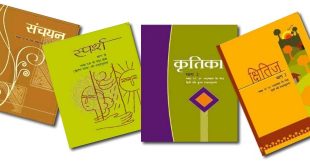Question: What are the main features of a democracy?
Answer: Democracies have a formal constitution; they hold elections, have political parties and guarantee rights to its citizens.
Question: What is the basis of democracy and what are its advantages?
Answer: Democracy is based on the idea of deliberation and negotiation. Deliberation and negotiation have an advantage as they ensure that the decisions taken are acceptable to all the people.
Question: Does dictatorship always lead to higher economic growth?
Answer: Dictatorship has not produced higher economic growth in developing countries.
Question: Mention to factors that we have to look for while evaluating democracy in a system?
Answer: The 2 factors that we should look for are:
- are the elections fair and regular and
- are the citizens involved in the decisions the government takes
Question: Why is democracy a favorable from of government?
Answer:
- Promotes equality among citizens.
- Enhances the dignity of the individual.
- Improves the quality of decision making.
- Provides a method to resolve conflicts.
- Allows room to correct mistakes.
Question: Should we blame democracy for socio-economy and political problems?
Answer:
- It some of our expectations are not met we blaming the idea of democracy.
- The first step towards thinking carefully about the outcomes of democracy is to organise that that democracy is just a form of govt. It can only create conditions for achieving something.
- The citizens have to take advantages of those conditions and achieve those goals.
Question: What are our expectation form democracy?
Answer:
- In a democracy we are most concerned with ensuring that people will have the right to choose their rules and people will have control our the rulers.
- Whenever possible and necessary citizens should be be able to participate in decision making that affects them all. Therefore the most basic outcome of democracy should be that it produces a govt. That is accountable to the citizens and responsive to the needs and expectations of the citizens.
- Democracy is based on the idea of deliberation and negotiation.
Question: What is the normal procedure of a democratic government?
Answer:
- Regular, free and fair elections.
- Open public debates on major policies.
- Citizens right to information about the government and its functioning.
Question: What are the prudential reasons to support democracy too much?
Answer:
- Over a hundred countries of the world today claim and practice some kind of democratic polities.
- They have formal constitutions they hold elections they have parties & they grantee rights for citizens.
- While these features are common to most of them these democracies are very much different from each other in terms of their social-situations their economic achievements and their cultures.
Question: Is the democratic government efficient?
Answer:
- Some people think that democracy produces less effective government.
- It is of course true that non-democratic rulers do not have to bother about deliberation majorities and public opinions.
- They can be very quick and efficient in making and implementions.
- Some delay is bound to take place Democracy is based on the idea of deliberation and negotiation.
Question: Is democracy more efficient in terms of cost of time?
Answer:
- Imagine a government that may take decisions very fast. But it may take decisions that are not accepted by the people and may therefore face problems.
- The democratic government will take more time to follow procedures before arriving at a decision.
- It has fallowed procedures its decisions may be both more acceptable to the people and more effective.
Question: What is transparency?
Answer:
- A citizen wants to know if a decision was taken through the correct procedures was taken through the correct procedures can find it out.
- She has the right and the means to examine the process of decision making. This is known as transparency.
Ex: A citizen and file for RT and ask for info.
Question: Is democracy attentive to the needs of people and is free from corruption?
Answer:
- Democracies often frustrate the needs to the people and often ignore the demands of a majority of its population.
- The routine takes of corruption are enough to convince is that democracy is not free of this evil.
- There is nothing.
 Class Notes NCERT Solutions for CBSE Students
Class Notes NCERT Solutions for CBSE Students





